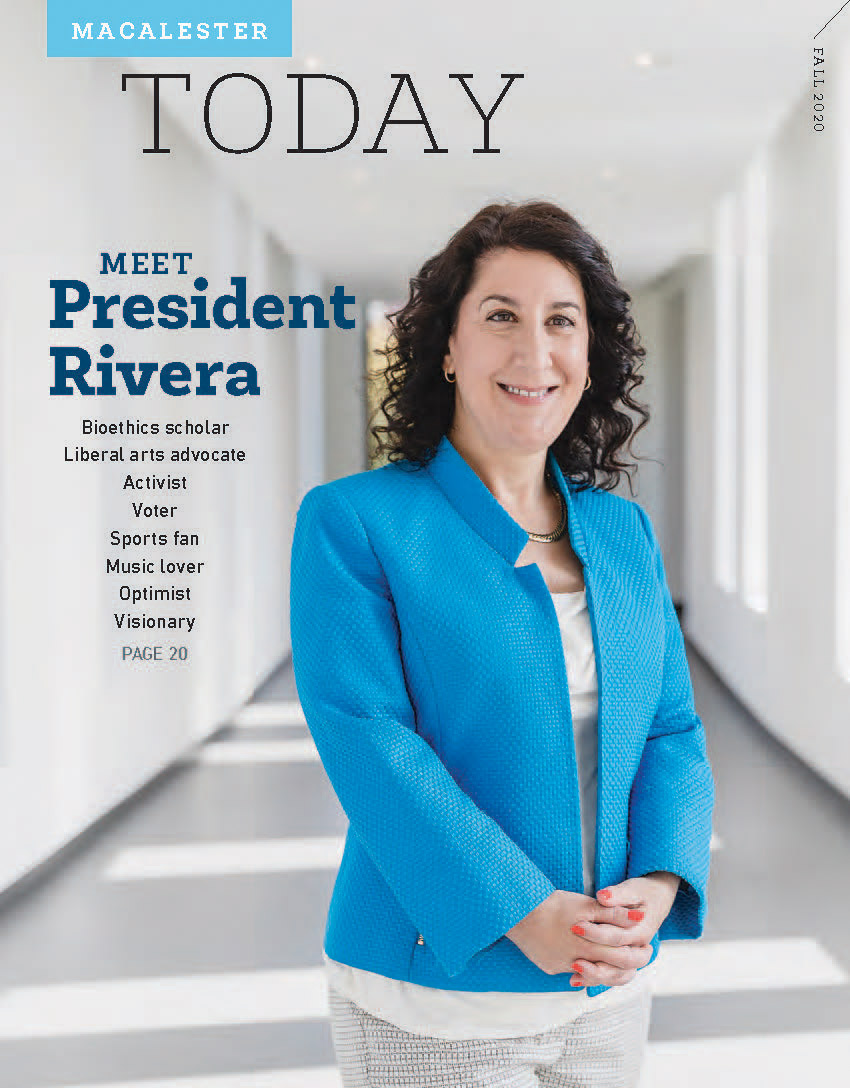
Last December, Marichel Mejia ’11 sat in the House of Representatives Gallery, breathlessly watching the screen that displayed the vote tally. She sat with 40 of her colleagues: members of United Farm Workers and the UFW Foundation, all wearing their red shirts with the union’s trademark black eagle across the chest. They had spent the last year working around the clock to advocate for the Farm Workforce Modernization Act, which would grant undocumented farmworkers a path towards legal immigration status.
They watched the board with the display of votes in nerve-wracking silence. They needed 218 supporters, a simple majority. They got 260.
Audience members aren’t supposed to say anything in the chamber, but the group stood up and shouted the famous slogan of UFW: “Si, se puede!” Yes, it can be done!
Mejia’s career with UFW and the UFW Foundation is, indeed, about getting things done. She began as an intern, was hired as an organizer, became a coordinator, and is now a national field director. Based in Los Angeles, Mejia oversees the federal-level effort to advocate for better working conditions for hundreds of thousands of farmworkers across the country. Though her role has changed, one thing has remained constant. “It ultimately boils down to the fundamentals you learn when you’re an organizer,” she says. “The ability to connect with people, the ability to empower and engage workers. Farmworkers are at the heart of what you do. It’s about keeping them at the center.”
Mejia grew up in St. Louis Park, Minnesota, the daughter of a white mother and Afro-Latino father. “We were always talking about politics and social justice issues,” she says. As a Macalester student, she knew she wanted to work in the immigrant community. Supported in part by a Macalester Live It grant, she interned with the UFW in California’s Central Valley, where she helped organize grape workers.
“I was shy and my Spanish was not great,” Mejia remembers. But the organizers at UFW trained her well, teaching her how they as farmworkers had gone from not having a voice or fair working conditions to winning union contracts. By the end of the summer, she was able to stand in front of a crew of 70 workers and talk to them with ease. When she returned to Macalester in the fall, she brought this newfound passion and sense of confidence back to campus.
“I wanted to give back to UFW, who showed me that I could be a leader,” Mejia says. With help from the Adelante! student org, she dedicated her senior year to fundraising and raising awareness. They raised enough money to bring UFW president Arturo S. Rodriguez to speak on campus in front of 500 students. Rodriguez hired her right out of college, and she’s been working with UFW and its sister foundation ever since.
“We’re a humble organization. Low-wage workers of various [immigration] statuses, predominantly undocumented, going up against a multimillion-dollar industry—that’s a challenge. That said,” she says, a smile spreading across her face, “we’ve been able to overcome that in remarkable ways.”
UFW is no stranger to overcoming the odds. Cesar Chavez and Dolores Huerta, the union’s founders, won the first union contracts for farmworkers in the 1960s, when there was no federally protected right to unionize. More recently, UFW and the UFW Foundation won protection for farmworkers in the form of overtime pay, heat protections, and sick pay. “Our ‘yes we can do it’ attitude shines through time and time again,” Mejia says.
In the COVID-19 pandemic, the challenges have only gotten steeper, making farmworkers even more vulnerable. Their workplaces often don’t provide PPE or employ proper sanitation measures. Many farmworkers cannot access federal benefits due to their immigration status. Additionally, in the rural locations where farmworkers live, food banks have limited hours, and their long workdays make it impossible to access them. And when the pandemic hit, price gouging made food more expensive—the very food they are working long and hard hours to produce. Mejia quotes César Chávez: “It’s ironic that those who till the soil, cultivate and harvest the fruits, vegetables, and other foods that fill your tables with abundance have nothing left for themselves.”
In response, the UFW Foundation has partnered with World Central Kitchen, a nonprofit that provides emergency relief meals, to distribute food in rural farmworker communities throughout California. They’ve provided nearly 200,000 meals in the span of months. They’re also distributing masks to workers in California and Washington state, conducting virtual town halls between members of Congress and farmworkers, and continuing their campaign for federal measures on legalization of immigrants, heat protections for outdoor workers, COVID-19 protections, and overtime pay.
These victories are, as Mejia says, remarkable. She glows with optimism, striking in a time when achieving change has felt incredibly daunting. Ask her what advice she has for students pondering careers at such an uncertain time—or for so many other people who are considering how to make a difference—and she answers with conviction.
“Follow your passion,” she says. “Don’t let anybody tell you that what you’re interested in isn’t valid or isn’t going to lead to a career, because it will. It might take time, or you might go on multiple paths to end up where you’re supposed to be, but don’t give up. Sí, se puede!”
By Rachel Rostad ’15 / Photo by Kira Friedman
Rachel Rostad ’15 is a freelance writer based in St. Paul.
October 21 2020
Back to top





